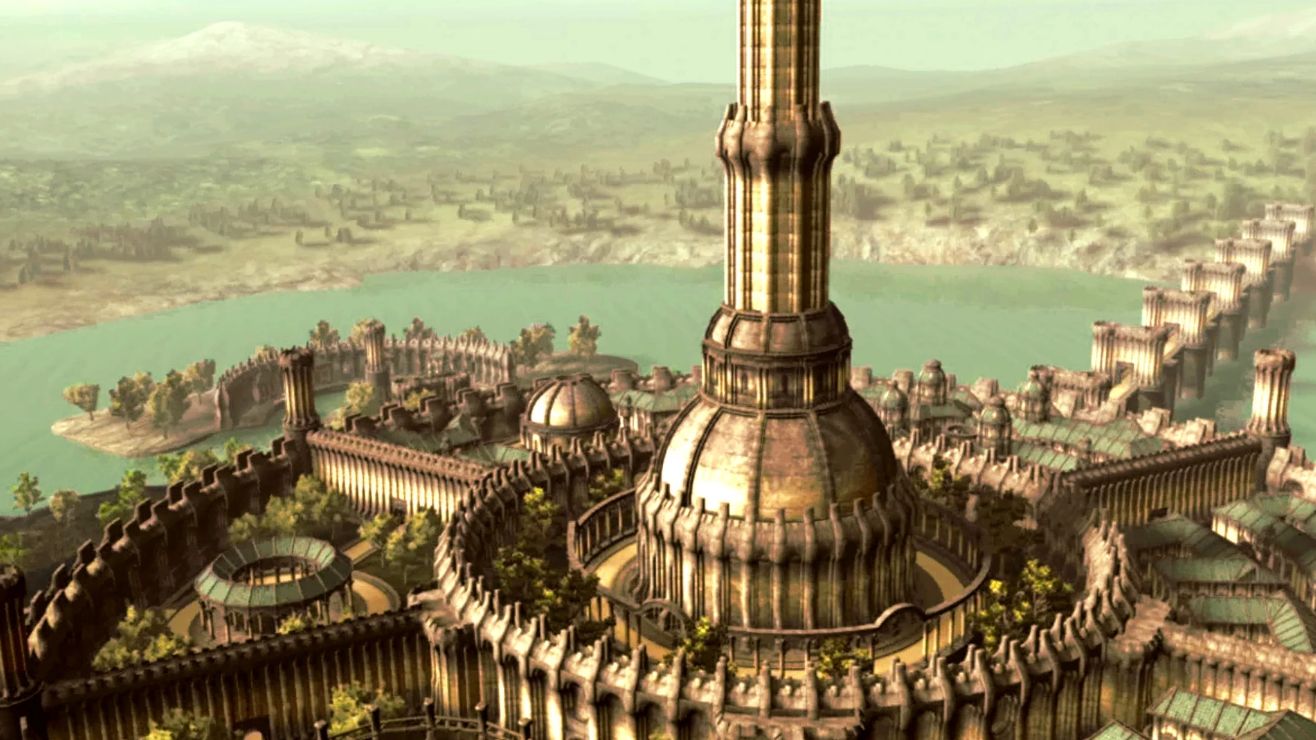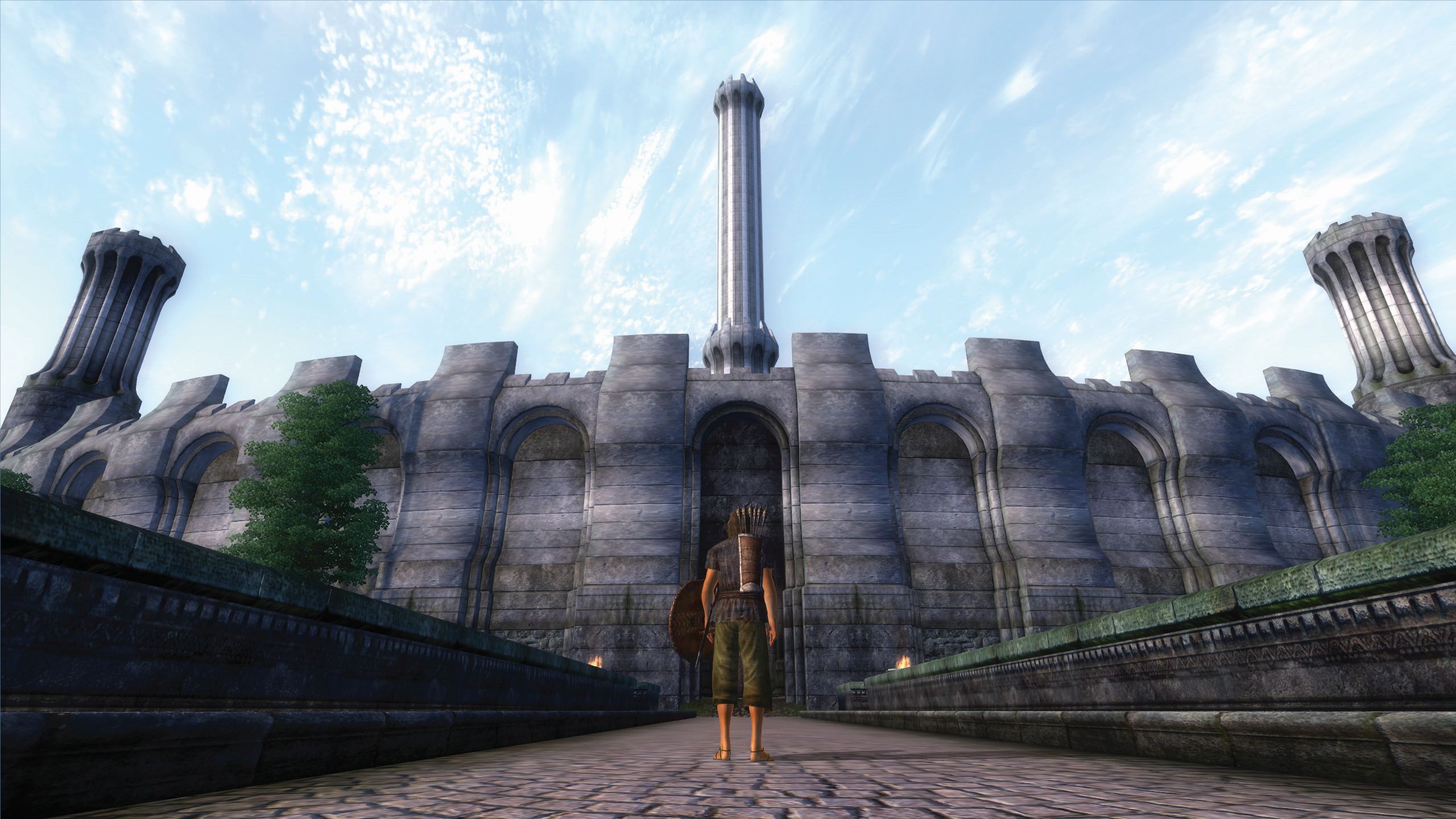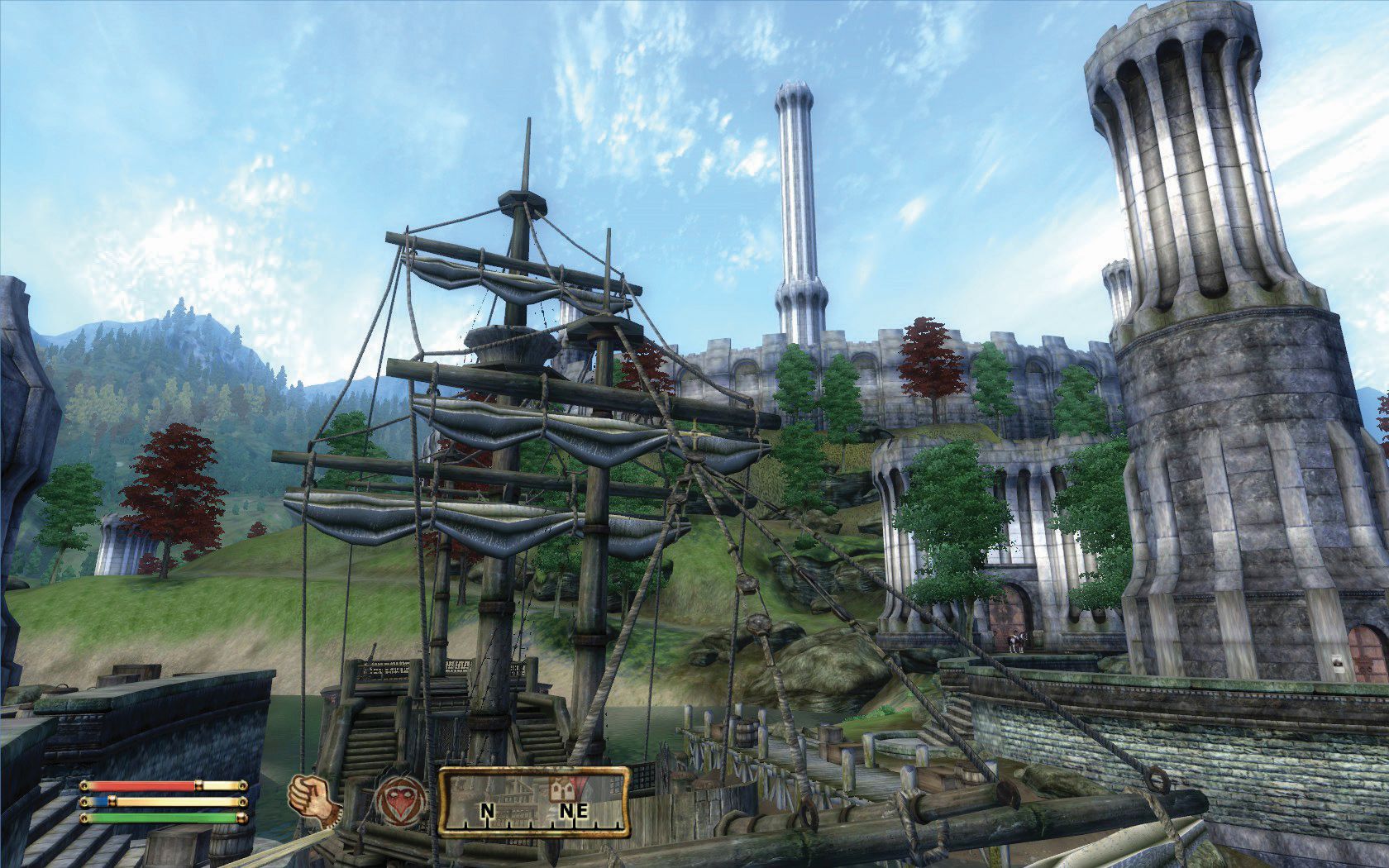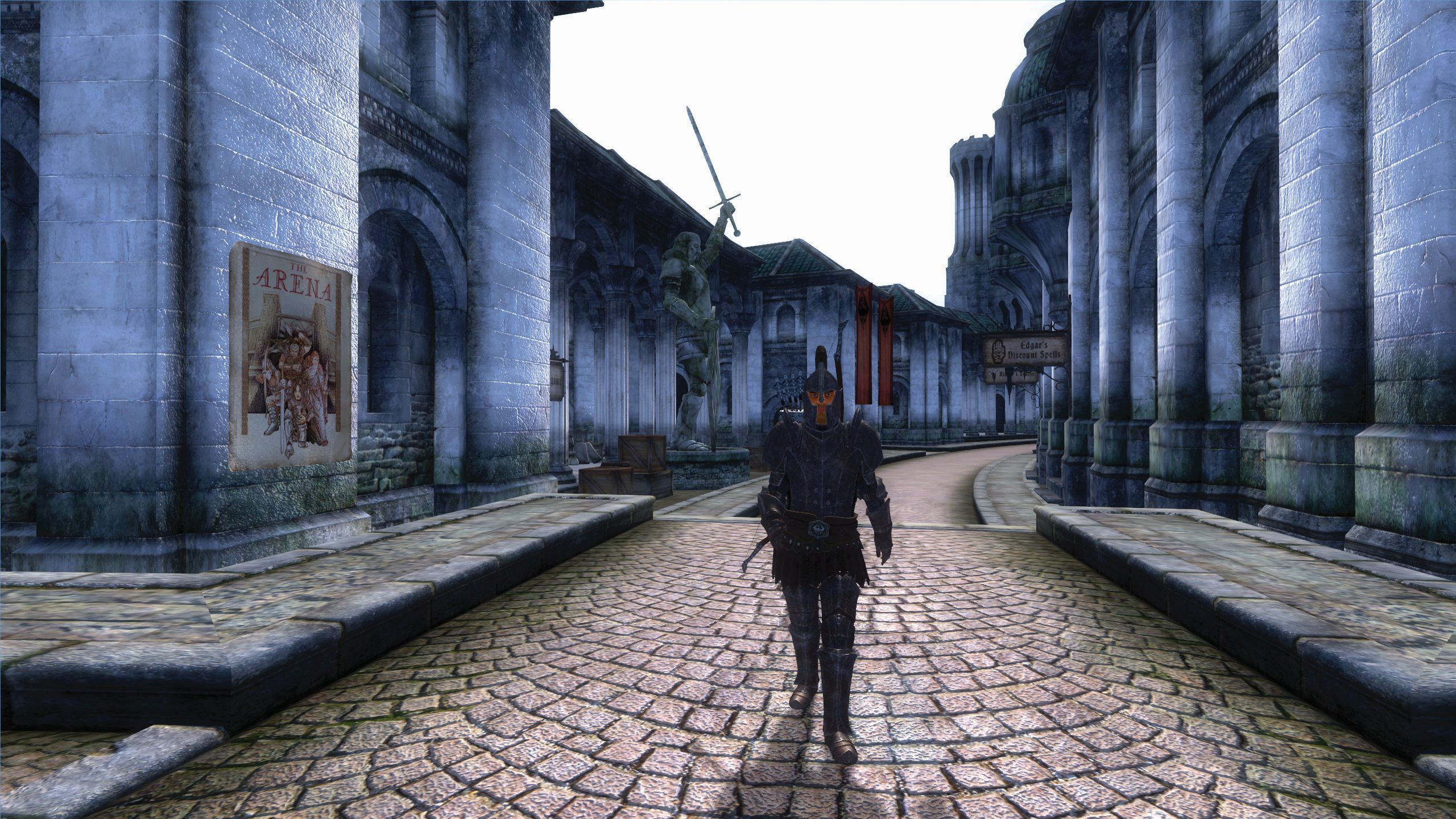Why I love Oblivion's Imperial City
Seeking peace and quiet in a tumultuous world.


In Why I Love, PC Gamer writers pick an aspect of PC gaming that they love and write about why it's brilliant. This week Lorna Reid goes back to one of gaming's great capitals.
From the intro to the dying moments of the main quest, the Imperial City dominates Oblivion, and it’s little wonder. This grand place can be seen for miles across the map. It’s the jewel of the empire. No matter where I wander, or in whose house I lurk, stuffing outsized magical weapons into jewellery boxes, I always make my way back there. It’s my safe haven.
Constructed by the long-dead Ayleids, and boasting the characteristic white stone and smooth lines of their striking architecture, the city is a circular hub, split into concentric districts. Each of them oozes wealth, only the outlying waterfront area and occasional beggar’s bedroll lying forlornly in odd corners hints at the city’s poorer undercurrent. Nothing is perfect, even this iconic place.
As a game city it has its flaws. It’s woefully underpopulated, something especially noticeable now, more than ten years after Oblivion’s release. The emptiness risks being jarring, but I find it conspires with everything else to lend the city a restful, even fading feel. It adds to the melancholic feeling of time marching away, echoing an empire in its last days.

The sedate pace of life and the regal architecture encourage quiet meandering rather than breakneck adventure. So much so that, at times, I feel guilty about being the most raucous thing in sight. I bounce in vast circuits of Green Emperor Way in order to build my Acrobatics skill, while simultaneously conjuring a dagger to increase my paltry Conjuration ability. And when the door of the Mystic Emporium decides to lock itself in daylight hours, I find myself committing the tamest, most mellow crime in the world of breaking and entering, just so I can legally buy gear. I always feel on the verge of being expelled for shattering the peace.
It may just be that I’ve succumbed to all the harp music, but even I eventually slow down. The whole city is infused with an atmosphere of serenity, which is the perfect foundation for the contrasting chaos of the final battle, in which the city is attacked and the last of the Septim bloodline spectacularly immortalised in stone.
Nostalgia plays a huge role in why I love the city—it was my first port of call and supported my idle wanderings for a long time.
Nostalgia plays a huge role in why I love the city—it was my first port of call and supported my idle wanderings for a long time. With little money and a lightweight (read: flimsy) character, I spent much of my time in the Imperial Market district, gleefully looting crates and barrels for cloth, silverware, and whatever else I could sell for a few gold. Those early days, scraping by and gathering enough cash to buy arrows or upgrade a piece of armour, were formative and the bedrock of my fond memories of a superb game.
The same nostalgia shields the place from harsher criticism, especially as far as the scarcity of quests goes. Despite the various guild missions, there isn’t much to do. Nevertheless, I enjoy what few quests do exist, especially the early challenge of investigating crooked merchant Thoronir. Vanilla, yes, but who cares when you want an easy life and a free house?
The biggest gaming news, reviews and hardware deals
Keep up to date with the most important stories and the best deals, as picked by the PC Gamer team.

The city’s rich, well-decorated interiors and architectural flourishes are just too much of a draw for the snob in me. Desiring somewhere plush and relaxing to lay my head, I always shun the crappy waterfront for richer pickings among the city’s elite. With a few lockpicks and even fewer morals, a lavish home in the posh part of the city can be yours. Thanks to the aforementioned quest, you get the chance to bump off a grave-robbing pal of Thoronir and keep his swish house for yourself.
The beauty of Oblivion’s sandbox world is that there’s a nook for everyone—a place to return to, whether out of a desire to recapture the magic of earlier memories, to fill your hard drive with near-identical screenshots, or just to play Sim Cyrodiil in one of the houses. Maybe even to discover an answer to that age-old question: just how many magical battle-axes can you fit into one jewellery box?
In a game where you can do everything—even throw shoes on rooftops—sometimes the most enjoyable thing is to have somewhere peaceful in which to do nothing.

